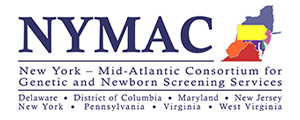 |
| A picture of Children's Hospital of Pittsburgh. |
I currently work as a Genetic Counselor Assistant (GCA) in
the Medical Genetics Department at Children’s Hospital of Pittsburgh of UPMC. I
was hired in July, and having the opportunity to work part-time at Children’s
while attending Pitt is a dream come true. I have always loved working with children,
and directly helping the genetic counselors with their various day-to-day tasks
gives me insight into the many roles and responsibilities of pediatric genetic
counselors. As a GCA, some responsibilities I have include writing letters of
medical necessity, contacting insurance companies regarding genetic testing,
filling out test requisitions, and doing some preliminary prep work for
patients who will be seen in the next week. Recently, I have started calling new
patients to give them about a genetic counseling appointment, to ensure they
know what to expect when they arrive at the hospital.
One thing that is exciting to see as both a genetic
counseling student and a GCA is the rapid growth in the field. In addition to
hiring me as a part-time GCA this summer, Children’s hired two other GCAs with
whom I have the privilege of working. Also, four genetic counselors have been
hired since I started my position (doubling the number of genetic counselors in
the Medical Genetics Department!), and there is still a need for more. As an
emerging professional in this field, having the chance to work with genetic
counselors with wide ranges of experience, from recent graduates to experienced
genetic counselors, has been an incredible learning opportunity.
 |
| Working as a GCA allows students to integrate class and clinical knowledge while getting paid. |
Although balancing work and school can sometimes be
difficult, most of the time the material I learn in class and my work position go
hand-in-hand. I am fortunate to have days where I work in the morning and then attend
class in the afternoon, where we discuss symptomology, conditions, or genetic
testing that I had just seen in my work setting. Being a GCA in a pediatric
setting facilitates this learning process, due to the wide range of disorders
and genetic variants that children may have who are referred to Medical
Genetics. In a similar fashion, being a GCA also allows me to synthesize
material I learn in class and gives me the opportunity to apply it in a
clinical setting. I expect that my work position will also ease my transition
from graduate student to genetic counselor, since I will have had almost two
years of experience doing many of the daily tasks that are expected of genetic
counselors. Just after a few months, I have grown comfortable using the
electronic medical record systems, working with other medical professionals,
and calling patients and families. My experience thus far has begun to equip me
with core skills of genetic counselors, including knowledge and interpersonal communication,
which will be invaluable to my future career.
While I have learned a great deal about genetic counseling
as a GCA, I would have to say a highlight of my job is the entire Medical
Genetics Department staff. My supervisor fosters a supportive, open environment,
and I feel everyone at the office is a work family. Everyone has a strong work
ethic, and the genetic counselors are incredibly kind and generous with their
knowledge. Yet, there is still fun on a daily basis, as well as an ample supply
of office treats! Recently, the department has begun organizing monthly social
events, including escape rooms and haunted houses, to promote staff bonding and
friendship outside of the office. The compassion and camaraderie among the
counselors, new and experienced, really makes me excited to come to work every
day. I am grateful for the professional opportunity to be a GCA at Children’s, and
I look forward to learning more and continuing to hone my skills as a graduate
student and future genetic counselor.
 |
| -- Rebecca Clark, Class of 2019 |



